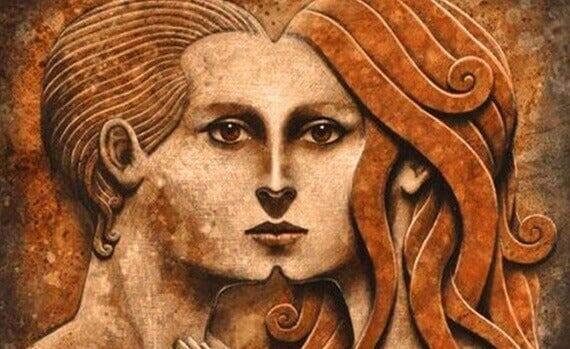The archetype of shadow represents, according to Carl Jung’s analytical psychology, the “dark side” of our personality. Is it the turbulent underworld of our psyche that contains our most primitive feelings, the sharpest selfishness, the most repressed instincts and all?May the conscious mind reject and plunge us into the deepest chasms of our being.
We have all heard of this concept, the archetype of shadow that is somehow still used in psychology to talk about this confrontation: the sense of contention that we sometimes have with ourselves when we work with our frustrations, with our fears, insecurities or resentments.
“No one illuminates by imagining figures of light, but realizing the darkness. “Carl Jung?
However, we must not forget that the idea that Carl Jungnos brought through his work on archetypes was already present in our historical and cultural society Is the concept of shadow or dark side that common duality that inspired Robert Louis Stevenson to create his classic?Jeckyll and Hyde ?, long before Jung developed his theory about the archetype of shadow.
Everything that we ever consider ourselves to be? Due to our education and the moral norms of our society, it becomes our shadow, however, it is not advisable to see all these internal dynamics as reprehensible or dangerous experiences, to the point of thinking that we all have a Hyde that wants to manifest itself.
Jung himself explained that there are different types of shadows and that one way to achieve well-being, healing and personal freedom is to raise awareness and face them all.
The archetype of shadow is linked to the Freudian concept of unconsciousness, however, it contains unique nuances that differentiate and greatly enrich it, it cannot be forgotten that what began as an intellectual idyll between Freud and Jung finally cooled to the point He said that the father of psychoanalysis was “a tragic figure, a great man, but a person with which he did not agree”.
Jung has developed his own method of work, analytical psychology, put aside the sofa and this asymmetric relationship between therapist and patient to develop a therapy based on conversation, to investigate the structure of the psyche and the unconscious through which archetypes navigate . the one that could have the greatest therapeutic value was undoubtedly the archetype of the shadow, let’s see its characteristics:
“Unfortunately, there is no doubt that man, in general, is not as good as he imagines or would like to be. Each has a shadow, and the more hidden it is from the conscious life of the individual, the darker and denser it is in any case, this is one of our worst obstacles, since it frustrates our well-intentioned actions. ?? Carl Jung?
We are most likely to be theoretically interested in Jung’s shadow archetype theory, which has its charm, metaphorical essence and mysticism. We all see in this figure the most classic representation of the taboo, evil and dark dimension of the human personality that always arouses great interest. However, can we remove any practical applicability from the shadows in our daily lives?
Is the answer yes? As the father of analytical psychology has said in books such as “Archetypes and Collective Unconscious”, our task in life is to fully accept us and integrate “Our Shadow” into personality to make it conscious and work with it. To despise him, to allow him to continue in our unconscious universe, can rob us of the balance and opportunity to be happy.
We cannot forget what types of dynamics make up this concept that we call shadow: here are our fears, the traumas of the past, the disappointments that poison us, the uncultivated dreams that turn into frustrated sharks navigating our personality. internal demons acquire greater ferocity and, if silenced, will eventually control us, projecting onto others, in many cases, an image of ourselves that we do not like.
Therefore, we must not forget that our personal growth and psychological well-being will always depend on our ability to illuminate these shadows, after this act of bravery, delicate but precious work will begin to heal us, to regain calm and well-being.

